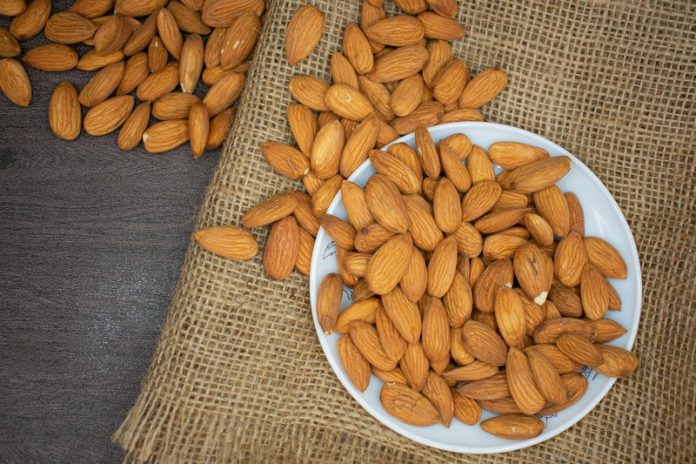
In a new study from the University of Toronto, researchers found that a calorie labeled is not the same as a calorie digested and absorbed when the food source is almonds.
The findings help alleviate concerns that almonds contribute to weight gain, which persist despite the widely recognized benefits of nuts as a plant-based source of protein, vitamins and minerals.
Nuts have generally been thought of as healthy the last two decades, but the messaging around nuts has often come with a disclaimer that they are high in fat and energy.
In the study, the team tested 22 women and men with high cholesterol, who underwent a series of three, month-long dietary interventions separated by a week-long washout period.
All study participants consumed a diet low in saturated fat and cholesterol.
The three dietary interventions were full-dose almonds (75 grams per day or three-quarters of a cup); half-dose almonds plus half-dose muffins; and full-dose muffins as a study control.
The nutritional makeup of the muffins matched the almonds in the amount of protein, fiber and fats.
The team found that after digestion, about 20% of calories derived largely from fat in almonds remained unabsorbed, which they observed in stool samples.
That translated to about two percent less energy absorbed from the diet overall among study participants.
A person eating the same amount of almonds in a daily diet of 2,000 to 3,000 calories would absorb 40 to 60 calories less than would be predicted by Atwater factors, on which many food labels are based.
That could result in weight loss up to 2.9 kilograms or 6.3 pounds over a year, assuming no compensation in the form of increased intake or decreased energy expenditure.
Participants in the study did not gain weight, which is consistent with the majority of high-quality trials that measure nut consumption and weight gain, some of which show an association with weight loss.
Diabetes Canada recently adjusted their guidelines based in part on the study’s findings, and to avoid the stigma around nuts and weight gain.
If you care about nutrition and your health, please read studies about new health benefit and harm of vitamin D you should know and findings of most popular vitamin and mineral supplements cannot provide health benefits.
For more information about diet and wellness, please see recent studies about this diet may lead to vision loss later in life and results showing that this diet could prevent heart failure better than any medicine.
The study is published in Mayo Clinic Proceedings. One author of the study is John Sievenpiper.
Copyright © 2021 Knowridge Science Report. All rights reserved.



